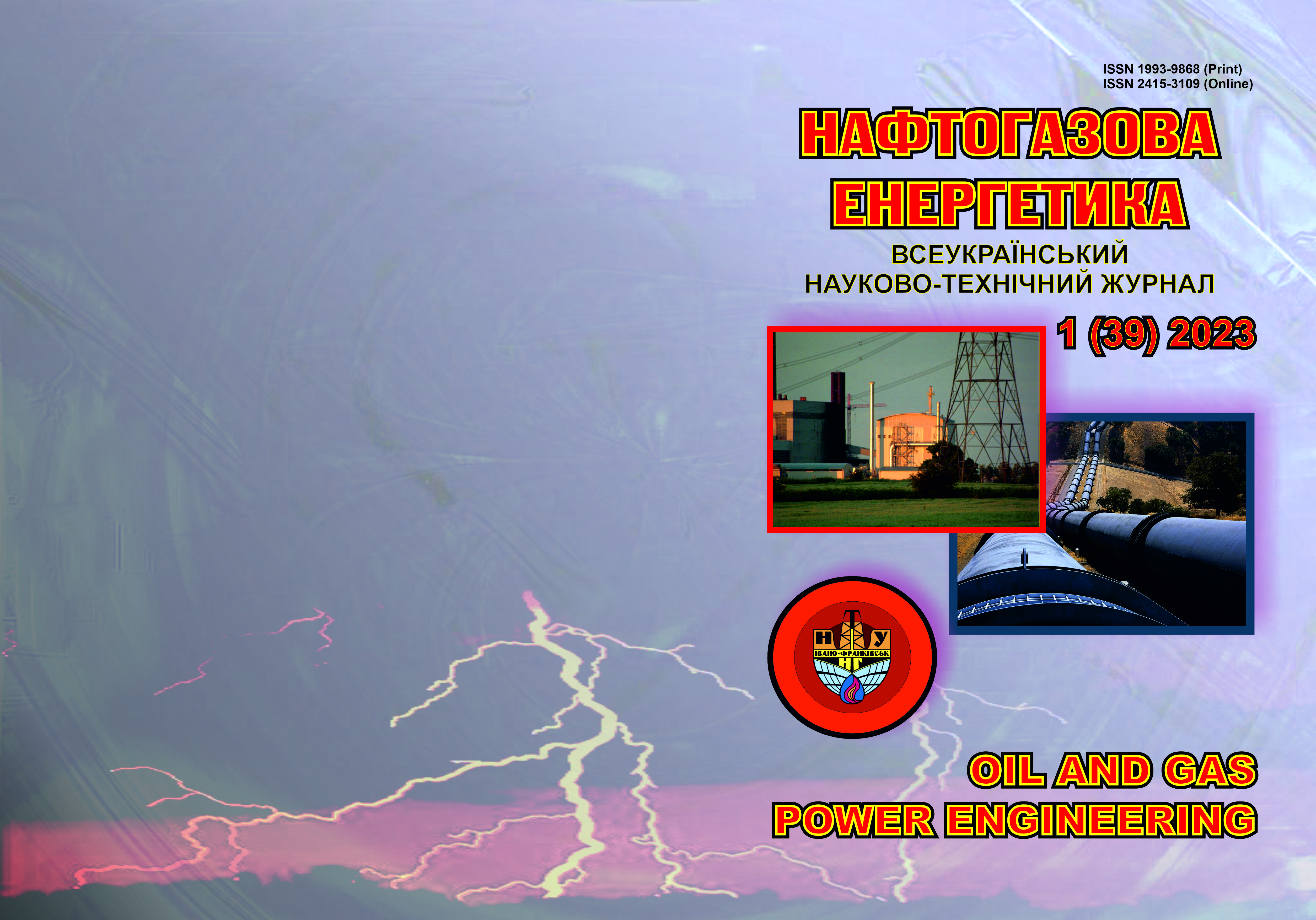ASSTSSMENT OF THE EFFICIENCY OF HYDRAULIC FRACTURING BASED ON THE WELL LOGGING RESULTS
DOI:
https://doi.org/10.31471/1993-9868-2023-1(39)-7-15Keywords:
hydraulic fracturing, well logging, flow stimulation, well testing, menilite deposits, porous-fractured rocks.Abstract
The vast majority of oil fields in Ukraine are at the final stage of development. The inherent energy of such deposits has been exhausted, and in order to further extract oil, engineers are forced to take measures to maintain internal reservoir pressure. However, despite these efforts, there are a number of factors that impede the free flow of fluids into the well. In particular, during a long period of products withdrawal from the perforated interval, the filtration properties of the formation in the near-well zone deteriorate due to its gradual colmatization as a result of physical and chemical processes that occur during fluid filtration along the pore space. One of the most effective ways to stimulate oil flow into a well is to use hydraulic fracturing technology. Performing such an operation in a well is a complex task that requires taking into account a priori information about the filtration, capacitance and mechanical properties of the formation, the mineral composition of the rock matrix and the degree of its heterogeneity, oil characteristics, reservoir pressure, temperature, etc., and ensuring the control of the efficiency of the work performed. In this case, the main source of information is well logging and well testing. This paper evaluate and shows the possibilities of using the results of a set of geophysical and hydrodynamic methods as an integral part of hydraulic fracturing technology and demonstrates the effectiveness of this technology for increasing the flow rates of old wells.
Downloads
References
Kachmar Yu. D., Tsomko V. V. Do 60-richchia zastosuvannia hidravlichnoho rozryvu plasta u PAT “Ukrnafta”. Naftohazova haluz Ukrainy. 2015. No 4. P. 43-46. [in Ukrainian]
Kachmar Yu.D., Burmich F.M., Andrusyak A.M., Grigorash V.V. Novi tehnologiyi potuzhnogo gidrorozrivu plasta. Zbirnik naukovih prats. Ivano-Frankivsk, 2003. 302 p. [in Ukrainian]
Kachmar Yu. D. Metod vyznachennia ochikuvanoho tysku pry proektuvanni HRP na Prykarpatti. Naftopromyslova sprava. 1990. No 8. P. 25-29. [in Ukrainian]
Kachmar Yu. D. Do vyznachennia tyskiv i vytraty ridyny pry planuvanni HRP. Naftova i hazova promyslovist. 1991. No 2. P. 25-27. [in Ukrainian]
Kachmar Yu. D. Merkuriev A. B., Burmych F. M., Savka V. M. Zastosuvannia potuzhnykh hidravlichnykh rozryviv plasta na rodovyshchakh Ukrainy. Naftova i hazova promyslovist. 1999. No 4. P. 28-31.
Krasnikova O., Lisny G., Vyzhva S. Current state of application of hydraulic fracturing microseismic monitoring methods. Visnyk of Taras Shevchenko National University of Kyiv: Geology. 2021. No 4(95). P. 64-71.
Starostin V.A., Fedak I.O. Perspektyvy radonovoho indykatornoho metodu u vyznachenni obvodnenykh intervaliv produktyvnykh plastiv, nasychenykh viazkoiu naftoiu (na prykladi Semenivskoho naftovoho rodovyshcha). Rozvidka ta rozrobka naftovykh i hazovykh rodovyshch. 2006. No 2 (19). P. 15–19.
Kurose S. Requiring the Use of Tracers in Hydraulic Fracturing Fluid to Trace Alleged Contamination. Sustainable Development Law & Policy. 2014, 14, no. 3. Р. 43, 54.
Kolodii V. V., Boiko H. Yu., Boichevska L. E. ta in. Karpatska naftohazonosna provintsiia. Lviv; Kyiv: TOV “Ukrainskyi Vydavnychyi tsentr”. 2004. 390 p. [in Ukraini-an]
Atlas rodovyshch nafty i hazu Ukrainy: u 6 t. / Hol. red. Ivaniuta M. M.. Lviv: Tsentr Yevropy, 1998. Vol. 5: Zakhidnyi naftohazonosnyi rehion. 327 p. [in Ukrainian]
Boiko H. Yu. Nadvysokoproduktyvni naftovi sverdlovyny. Naftova i hazova promyslovist. 2000. No 3. P. 32-37. [in Ukrainian]
Downloads
Published
How to Cite
Issue
Section
License
Copyright (c) 2023 Oil and Gas Power Engineering

This work is licensed under a Creative Commons Attribution-ShareAlike 4.0 International License.


.png)






1.png)









